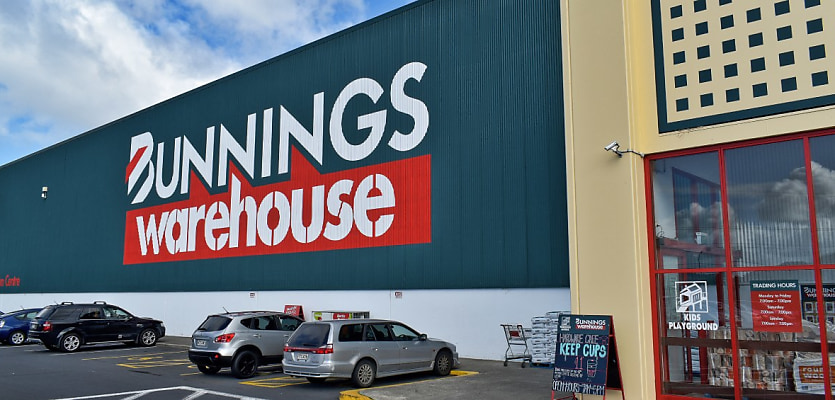Low prices may be part of the Bunnings catchcry, but the blue-chip warehouse has proved that even low yields are worthwhile to investors in the current market.
In a deal worth almost $80 million, the Burgess Rawson team has transacted an outer-west Melbourne Bunnings warehouse to a private investor.
According to the group, the sale sets a new yield benchmark of just 3.95 per cent, “highlighting the value premium attributed to brick-and-mortar assets with blue-chip tenants”.
The deal flies in the face of rising interest rates and bond yields, with Burgess Rawson noting that local investor and purchaser Jacky Cheung would be getting less return on his investment than he would using 10-year government bonds.
At the time of settlement, this yield was sitting at 4.1 per cent, but it is now sitting at 3.88 per cent.
All up, Mr Cheung spent $99.6 million for the 5.5-hectare Hoppers Crossing site, which also included a large-format Amart furniture outlet.
Just one year ago, the risk-free premium between 10-year bond yields and Bunnings freehold investment returns was almost 300 basis points, Burgess Rawson reported.
“But in what has become a familiar theme amid the ongoing share market volatility, many private investors are willing to pay higher prices and accept lower returns on commercial property offering secure, long-term income streams to the likes of Woolworths, Coles and Bunnings-owner Wesfarmers rather than buy shares in those companies,” it said.
According to Zomart He, who heads up Asian investment services at Burgess Rawson, Mr Cheung had seen the Hoppers Crossing property as the “safest place to park his money”.
Mr He outlined that ‘‘Bunnings is a blue-chip tenant, and they offer property investors large landholdings with few moving parts, making them very easy to manage”.
Burgess Rawson partner Billy Holderhead has also weighed in on the “remarkable” deal. From his perspective, it shows investors have ‘‘more confidence in Bunnings properties than they do in the Australian government” — and it’s all the more telling that private investors are once again showing interest in the space, despite a “long period of dominance by real estate investment trusts”.
“The relative cost of debt, gearing pressures and corporate governance have very quickly put institutional investors at a disadvantage in comparison to the private market.”
He added: ‘‘Private investors don’t answer to a board or investment committee, they make much faster decisions, and are typically sitting on a lot of cash or have very low loan-to-value ratios across their portfolios.”
Other recent Bunnings transactions came to the table with slightly higher yields of 4 per cent: last November, New Zealand investor Cook Property Group purchased a Bunnings warehouse at Queensland’s Hervey Bay for $58.6 million, while an unlisted Charter Hall fund purchased an NSW South Coast Bunnings warehouse for $65.3 million back in February.
ABOUT THE AUTHOR

Grace Ormsby
Grace is a journalist across Momentum property and investment brands. Grace joined Momentum Media in 2018, bringing with her a Bachelor of Laws and a Bachelor of Communication (Journalism) from the University of Newcastle. She’s passionate about delivering easy to digest information and content relevant to her key audiences and stakeholders.

Never miss a beat with
Stay across what’s happening in the Australian commercial property market by signing up to receive industry-specific news and policy alerts, agency updates, and insights from reb.
Subscribe to reb Commercial:







You are not authorised to post comments.
Comments will undergo moderation before they get published.